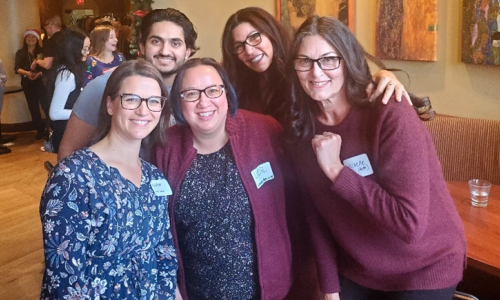
As I am writing this, I am only halfway through my eight-month software development co-op at Clio, but I already can confidently say that these four months might be the most valuable part of my time at SFU so far. Even though I still feel like I am just a rookie in Clio’s environment of inspirational and well-rounded people, the number of things I learned and tried fills me with confidence and courage to dig deeper and deeper into my field of study, because if my future job would be just as fulfilling from both a professional and social standpoint, I am proud to have chosen Software Development as my field of study.
The co-op program at SFU gets a lot of praise from students for giving them a chance to explore and extend their abilities, have a taste of the real world, and make the beginnings of their careers so much smoother thanks to the tremendous additions to their resumes. For the latter reason, some students primarily aim their applications to industry giants. However, in this piece, I would like to argue that aiming for promising start-up companies might be a significantly wiser decision for those who want to learn more.
I am going to use Clio as a model for a company that challenges you, demands a high quality of work and communication, sometimes completely fills your work day with tasks, yet still respects you, provides guidance, and never fails to show you that you are nothing but welcome in its passionate community. Some of my points might be specific to Clio, however, after talking to some of my peers in similar environments, I am convinced, that such a fantastic company is not unique among tech start-ups.
Here are some of the reasons why Clio turned out to be a dream come true for me, a student developer:
1. The Community Is Incredible
From the interview process itself, I got the impression that my personality is much more interesting to the organization than just my work experience – they work very hard to keep their community passionate and connected, and for that, they are always looking to pick candidates who would fit in.
It doesn’t end with interviews – throughout my first three months, I had the opportunity to hold hour-long conversations with all the key people from all of the departments (even non-technical ones), allowing us to talk about anything we could – related to work or not. Result – three months later I know enough spectacular, fun, and inspirational people to always have someone to have a chat with on any of my breaks. In comparison, my first co-op term was in a gigantic corporation where I hardly ever talked to people outside of my cubicle.
2. The Office Environment Is Tailored to Let People Enjoy Their Time
Tell me, reader, when you have an eight-hour workday, how much time do you spend productively doing your job? An unspoken truth is, it usually is about 4.5 – 5 hours out of the total. In an average workplace environment, the remainder of the business hours are normally filled up with lunch breaks, countless slow meetings, and, unfortunately, a whole lot of nothing.
Guess what, the founders of Clio acknowledge that people want to have meaningful context switches at work and encourage everyone to take breaks, socialize, play ping-pong, foosball, and video games. I, for example, could be constantly found around a gigantic puzzle that the entire department was working on for months. It is an amazing feeling, when you, a co-op student, can feel free to invite the CEO for a glass of beer any time during the day. Yep, there is also tap beer for free (assuming you would use your best judgment). Meanwhile, in my previous workplace, I couldn’t even find a fork to eat my lunch with…
3. When the Company Is Growing, There Are New Possibilities Everywhere
A thing about start-ups is those job roles are usually quite flexible, especially among developers – from planning to quality assurance and deploying, everyone does everything. However, I was lucky enough to join the company at the point where it still retained its start-up atmosphere, yet had been rapidly expanding, thus bringing in a variety of new people and projects.
When I started, I couldn’t have imagined that in the next four months, I will manage to get comfortable with a gigantic Ruby on Rails codebase only to rapidly and, surprisingly successfully, switch to a completely new framework for another project. Even after four months, the workplace has not lost its novelty and I feel excited every day because I never know where my development tasks will take me next month. Will I switch from front-end to web sockets? Or maybe I will focus on my soft skills and practice my public speaking on constant product demos? I truly feel like the choice is all mine! Again, very different from my first co-op, where once I had gone through training, I was left to do the same thing for three months. It was comfortable, stress-free, and even quite interesting, but I did not feel nearly as challenged as I do now.
Those are only some of the highlights from my first four months. I will be seriously considering extending this co-op for a full year – I feel like this is exactly the kind of job a person like me can get the most out of. I must acknowledge, that it might not be for everyone – it is perfectly reasonable to want to have a calmer, slower, and steadier environment around you. But for restless souls like myself, I could not wish for a better opportunity! Big thanks to Clio and SFU’s co-op program for making me feel so eager and empowered at the very start of my professional life.
Beyond the Blog
-
Visit SFU's Computer Science Co-op homepage to learn more!














